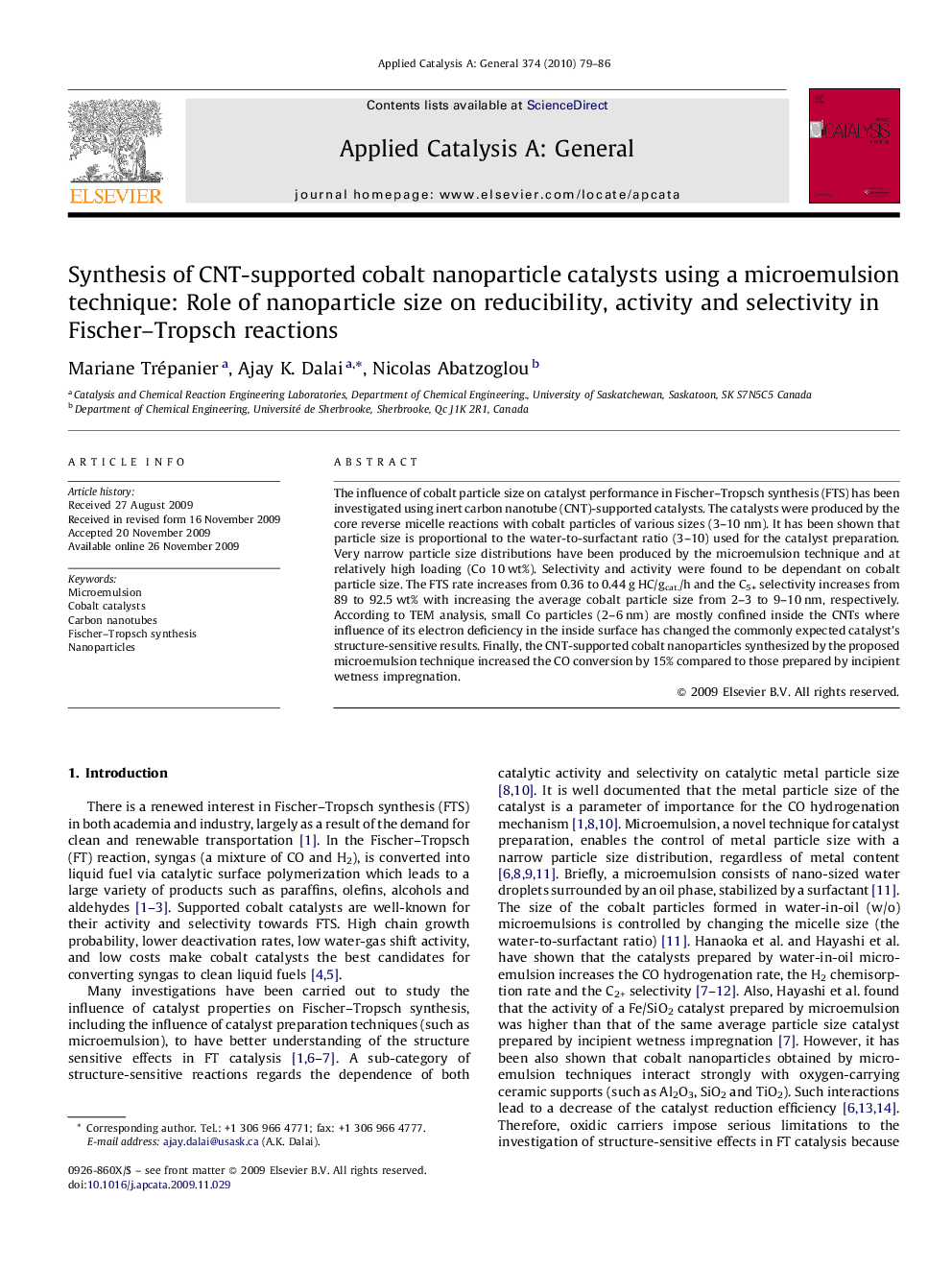| Article ID | Journal | Published Year | Pages | File Type |
|---|---|---|---|---|
| 42139 | Applied Catalysis A: General | 2010 | 8 Pages |
The influence of cobalt particle size on catalyst performance in Fischer–Tropsch synthesis (FTS) has been investigated using inert carbon nanotube (CNT)-supported catalysts. The catalysts were produced by the core reverse micelle reactions with cobalt particles of various sizes (3–10 nm). It has been shown that particle size is proportional to the water-to-surfactant ratio (3–10) used for the catalyst preparation. Very narrow particle size distributions have been produced by the microemulsion technique and at relatively high loading (Co 10 wt%). Selectivity and activity were found to be dependant on cobalt particle size. The FTS rate increases from 0.36 to 0.44 g HC/gcat./h and the C5+ selectivity increases from 89 to 92.5 wt% with increasing the average cobalt particle size from 2–3 to 9–10 nm, respectively. According to TEM analysis, small Co particles (2–6 nm) are mostly confined inside the CNTs where influence of its electron deficiency in the inside surface has changed the commonly expected catalyst's structure-sensitive results. Finally, the CNT-supported cobalt nanoparticles synthesized by the proposed microemulsion technique increased the CO conversion by 15% compared to those prepared by incipient wetness impregnation.
Graphical abstractThe Co/CNT catalysts were produced by two techniques: microemulsion and incipient wetness impregnation. FTS selectivity and activity was dependant on cobalt particle size. The confinement of the cobalt particles inside has changed the expected catalyst's structure-sensitive results. CNT-supported Cobalt catalysts synthesized by the microemulsion technique increased the CO conversion by 15% compared to those prepared by incipient wetness impregnation.Figure optionsDownload full-size imageDownload high-quality image (98 K)Download as PowerPoint slide
